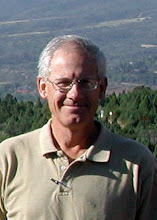Conceived in darkness, and then developed in a womb which was also dark, our birth must have brought an explosion of light into our consciousness. Come to think of it, I suppose there was a point in my life when I had no consciousness whatsoever -- another form of darkness.
Light. What is it? Where does it come from? Where does it go? What does it “want?”
|
by Hamed Saber is licensed under CC BY 2.0
|
I recently read a novel where one of the subjects, an eccentric philosopher, suggested something I’ll likely never forget. He suggested that:
“Once light, always light. No light ever goes wasted. It always remains “light!”
He was talking about the light we receive from the sun. All of life on earth depends on the light received by the sun.
Life absorbs light.
What happens to that light when life dies?
We have a wood burning stove in our home. According to the eccentric philosopher, when I put logs of oak into the stove and watch them burn, the flames I see are the same light that the oak tree once received from the sun. I tend to believe this is true.
The brain is locked in total darkness. It floats in a clear liquid inside the skull, never in the light. And yet the world it constructs in the mind is full of light. It brims with color and movement. So how does the brain, which lives without a spark of light, build for us a world full of light? Consider a single piece glowing in your family’s stove. That chunk of coal was once a green plant, a fern or reed that lived one million years ago, or maybe two million, or maybe one hundred million. Can you imagine one hundred million years? Every summer for the whole life of that plant, its leaves caught what light they could and transformed the sun’s energy into itself. Into bark, twigs, stems. Because plants eat light, in much the way we eat food. But then the plant died and fell, probably into water, and decayed into peat, and the peat was folded inside the earth for years upon years—Open your eyes, concludes the man, and see what you can with them before they close forever,
Doerr, Anthony (2014-05-06). All the Light We Cannot See: A Novel (pp. 48-49). Scribner. Kindle Edition.
What a marvelous existence we live in. Wonders abound everywhere. As I drive at night during this festive time of the year and see all the lights celebrating the season, I say to myself “hmmmm, now I know where all this light came from.” As I write this blog article, my desk lamp is reminding me of the same thing. When I turn on my smartphone and see the lit screen -- same thing.
I do not want this last blog post of the year to sound like an advertisement. Actually, I never want anything we do at Failsafe to sound like an advertisement. Then again, isn’t the sun itself an “advertisement?” Doesn’t the sun draw everything to itself? Even the plants we have on our window sills follow the sun as it makes its journey across the sky as if the sun is saying
“Follow me, or you will die.”
Our response to the unexpected, unplanned pain in our lives is akin to a plant that has been suddenly shielded from the light. The plant desperately seeks the source it needs, and so should we when we get in trouble. That’s been our message since 1985, when Failsafe first went into business. Things that go wrong are not what we think. They are the only thing capable of prying us out of the ruts of our own objectives, desires, and goals to force us to look for the light.
So yes, LET THERE BE LIGHT! It is my hope for myself, my loved ones, and all of humanity that we “open our eyes and see what we can with them before they close forever.”
Enjoy the Season!








 Virtually no-one in the “root cause analysis” world has a message or underlying purpose that is even remotely similar to what I have been led to imbed within Failsafe. As more and more people are exposed to our 4-day Latent Cause Experience, the word seems to be spreading -- interest is increasing. VP’s want their people to go through this experience. The hands-on folks want their VP’s to go through it. I often hear “I wish my wife (son, mother-in-law, etc.) could have gone through this.” “Have you considered offering this as a college class?” “Is health care aware of this, or how about banking?” “I wish you’d come to our church!”
Virtually no-one in the “root cause analysis” world has a message or underlying purpose that is even remotely similar to what I have been led to imbed within Failsafe. As more and more people are exposed to our 4-day Latent Cause Experience, the word seems to be spreading -- interest is increasing. VP’s want their people to go through this experience. The hands-on folks want their VP’s to go through it. I often hear “I wish my wife (son, mother-in-law, etc.) could have gone through this.” “Have you considered offering this as a college class?” “Is health care aware of this, or how about banking?” “I wish you’d come to our church!”